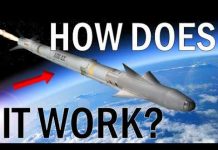
Elon Musk challenges President Trump’s European tariff strategy by advocating for a zero-tariff trade zone, creating tension within the administration’s economic policy team.
Key Takeaways
- Elon Musk is advocating for complete elimination of tariffs between the US and Europe, directly contradicting President Trump’s recent 20% tariff on EU products.
- Musk supports greater freedom of movement for workers between the US and Europe, contrasting with typical right-wing immigration positions.
- The Tesla CEO’s position has created friction with White House trade adviser Peter Navarro, who suggested Musk is merely protecting his company’s international supply chain.
- Tesla stock and major American stock indexes declined following Trump’s tariff announcements, indicating market concerns about trade tensions.
- Despite working with Trump’s administration as head of the Department of Government Efficiency, Musk’s 130-day special employee status allows him to publicly diverge on trade policy.
Musk’s Free Trade Vision Conflicts with Trump’s Tariff Strategy
Elon Musk has publicly broken ranks with President Trump’s trade policy, calling for the complete elimination of tariffs between the United States and Europe. This stance directly contradicts the administration’s recent implementation of a universal 10% baseline tariff on imports, with higher 20% rates specifically targeting the European Union due to its trade surplus with America. Musk’s advocacy for a tariff-free zone represents a significant policy disagreement within Trump’s circle of advisors, highlighting tensions in the administration’s economic approach.
Speaking via video at the League Party congress in Florence, hosted by Italy’s Matteo Salvini, Musk outlined his vision: “I hope it’s agreed that both Europe and the United States should move ideally, in my view, to a zero-tariff situation, effectively creating a free trade zone between Europe and North America.” This statement positions Musk as a moderate voice on trade within an administration that has prioritized protectionist policies aimed at addressing trade imbalances and revitalizing American manufacturing.
Labor Mobility and Tensions with Administration Officials
Musk’s economic vision extends beyond tariff elimination to include greater workforce mobility. “If people wish to work in Europe or wish to work in North America, they should be allowed to do so, in my view,” Musk stated at the Italian conference. This position on the worker movement stands in notable contrast to more restrictive immigration stances typically associated with right-wing politics in both America and Europe, creating an unusual policy alignment for someone who has shown increasing affinity with conservative political movements.
“I think you need to be careful with tariffs,” Musk cautioned, directly challenging the administration’s trade approach.
White House trade adviser Peter Navarro responded by suggesting Musk’s position stems from self-interest, pointing to Tesla’s extensive international supply chain as motivation for his free-trade advocacy. The public disagreement highlights the challenges of incorporating business leaders with global operations into an administration focused on America-first economic policies. Musk’s limited 130-day term as a special government employee leading the Department of Government Efficiency may provide him greater latitude to express divergent views than typical administration officials.
Economic Impact and European Response
Markets reacted swiftly to the administration’s tariff announcements, with Tesla stock experiencing a notable decline alongside major American stock indexes. The selloff reflects investor concerns about potential supply chain disruptions and the prospect of retaliatory measures from trading partners. For companies like Tesla with global manufacturing footprints and international customer bases, trade tensions represent a significant business risk that could undermine growth prospects and operational efficiency.
“I hope it’s agreed that both Europe and the United States should move ideally, in my view, to a zero-tariff situation, effectively creating a free trade zone between Europe and North America,” said Musk.
Italian Economy Minister Giancarlo Giorgetti has called for de-escalation in trade relations with the United States, warning against retaliatory tariffs that could further inflame tensions and damage economic partnerships. Giorgetti’s comments reflect broader European concerns about a potential trade war with America, as EU officials weigh their response to Trump’s tariff increases. The situation creates a diplomatic challenge for European leaders who must balance protecting their economic interests while avoiding a cycle of escalation.
Sources:
- Elon Musk pushes for US–Europe zero-tariff zone amid growing far-right ties – The Economic Times
- Musk Hopes for ‘Zero Tariff Situation’ Between US, Europe | The Epoch Times
- Elon Musk says he wants ‘zero’ tariffs between the US and Europe














